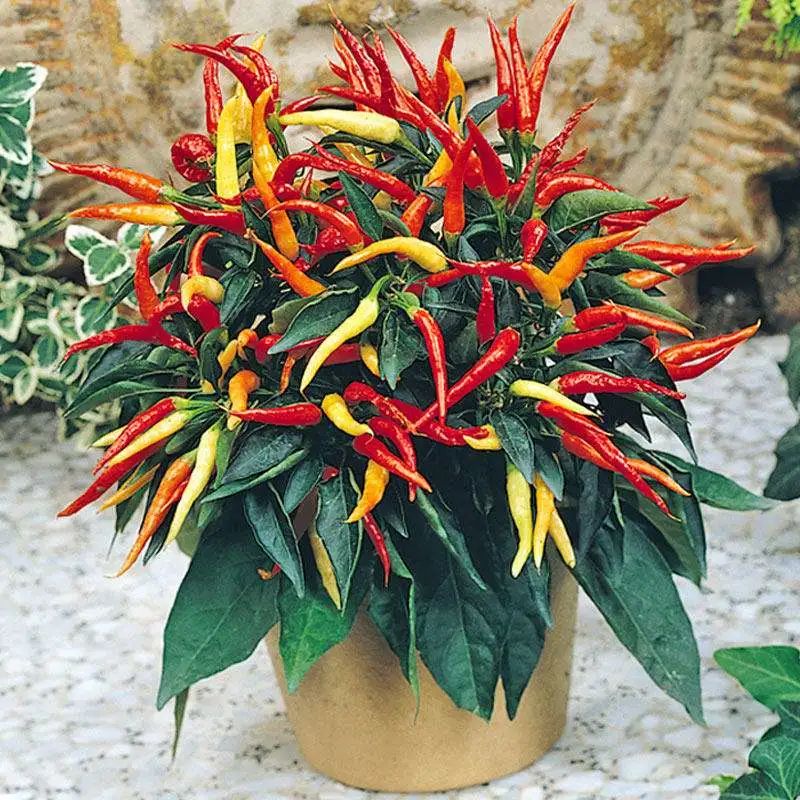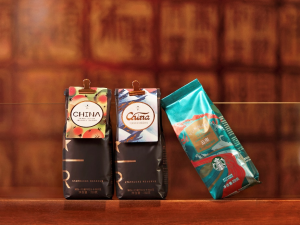擒数网 (随信APP) | 为什么刘备、关羽和张飞在蜀地呆了这么久,竟然从来没尝过麻辣火锅呢?

擒数网 (随信APP) | 为什么刘备、关羽和张飞在蜀地呆了这么久,竟然从来没尝过麻辣火锅呢?
【微信/公众号/视频号/抖音/小红书/快手/bilibili/微博/知乎/今日头条同步报道】
无论是内地的川菜,尤其是全世界到处都有的“麻婆豆腐”、老干妈,还是西北的牛肉拉面,或者西域名菜拉条子(拌面)、大盘鸡,都离不开辣椒。中华吃的文化,辣椒起码要撑起半壁江山。
有椒其馨-《诗经》。不过,这里的椒,是花椒。那时,中国还真没辣椒。
中国历史文献中第一次出现辣椒的记载,就已经是1591年明朝的《遵生八笺》。有趣的是,在这个最早的记载中,辣椒主要不是用来吃的,而是用来欣赏的:“番椒丛生,白花,果俨似秃笔头,味辣色红,甚可观”。
又过了100多年,18世纪中期,在四川文人李化楠所撰的著名饮食专著《醒园录》里,还根本没有一丝一毫辣椒的痕迹,可见直到那时,川菜里面基本上也是看不见辣椒的。
估计那时辣椒还长在文人雅士的花园里,主要是用来“观”的。大概这样:

一直到嘉庆、道光年间,也就是19世纪,有关地方志才终于出现辣椒“种以为蔬”,“无椒芥不下箸也,汤则多有之”,“择其极辣者,且每饭每菜,非辣不可”这样的描述,表明辣椒终于成为蔬菜的一种,走向中国百姓的餐桌。
附带说一下:道光年间的1840年,鸦片战争爆发。中国史学意义上的“近代史”就是从这里开始的。可见中国人开始大规模种辣椒、吃辣椒,基本上是近代的事情。
远在三国时期的刘关张,没有一起吃过一次麻辣火锅,那就是必然的了。
辣椒起源于美洲-迄今墨西哥还是辣椒生产和消费第二大国(第一当然是中国了),后来被哥伦布带去欧洲,这是没有问题的,有确凿的历史证据。但是,很多植物、果蔬传入中国的时间和路径相对比较清楚,但辣椒到底怎么传进中国,其实迄今还是个谜,没有定论呢。下面是几种说法。
有人认为:可能跟别的很多东西一样是通过陆上丝绸之路,从中亚传来的?但是时间对不上:中亚出现辣椒的记载只有300多年,比《遵生八笺》还晚。从中国传过去还差不多。地点也对不上,后面要说到。
后来有人说:要不真是从日本乃至韩国传来的?那更不对:日韩出现辣椒的记载更晚得多,从中国传过去的可能性也还更大些。
重新注意一下就会发现,1591年写《遵生八笺》的高濂,住在当时的“钱塘”,就是现在杭州市内。
此后不久,广东等地的一些民间记录也开始出现辣椒的有关记载。
所以,比较靠谱的路径,可能真的是这个“海路传入”说:当时与中国东南沿海通商的外国商人,从欧洲经由马来西亚等地,把辣椒带到了中国。马来西亚是当时中国与欧洲海上通商的中转枢纽,辣椒的出现也确实更早一些。这么低价值的东西,从欧洲贩运过来似乎不大合算,但是从马来西亚等南亚地区带过来,似乎就合理得多。目前这一派的观点占上风。
中国现在已经是辣椒的种植、消费第一大国,辣椒还承载了诸如“不吃辣的不革命”、泼辣的小姐姐叫“小辣椒”....之类的中国文化内涵。但是,它最早是地地道道的舶来“洋货”,而且在近代才进入和丰富了中华文化,却是没有问题的。
来源:不老的榕树 微信号:LAORONG_6688 #刘关张在蜀地呆了那么久为什么没有吃过一次麻辣火锅
英文版:
Whether it's Sichuan cuisine from the mainland, the ubiquitous "Mapo Tofu" found all over the world, Laoganma, or the beef noodles from the northwest, or the famous dish from the western region called Latiaozi (mixed noodles) and Da Pan Ji, they all cannot do without chili peppers. Chinese culinary culture, chili peppers are at least half the battle.
"Infragrant is the pepper" - "Book of Songs". However, the pepper mentioned here is actually Sichuan peppercorn. At that time, China did not really have chili peppers.
The first recorded mention of chili peppers in Chinese historical literature was in 1591 in the Ming Dynasty's "Zunsheng Bajian". Interestingly, in this earliest record, chili peppers were mainly used for appreciation rather than consumption: "The chili peppers grew in clusters with white flowers, the fruit resembling the tip of a bald pen, with a spicy taste and a red color, very pleasing to the eye."
More than 100 years later, in the mid-18th century, in the famous gastronomic work "Xingyuanlu" by Li Huanan, a literati from Sichuan, there was still no trace of chili peppers, indicating that until then, chili peppers were basically absent from Sichuan cuisine.
It is estimated that at that time, chili peppers were still mainly grown in the gardens of literati and scholars, primarily used for "admiration". Probably like this:
It was not until the Jiaqing and Daoguang reigns, in the 19th century, that local chronicles finally began to mention chili peppers being "planted as a vegetable", "no absence of pepper and mustard, many soups have it", "choosing the spiciest, each meal and each dish, cannot do without spice." This description indicated that chili peppers eventually became a type of vegetable and made their way onto the dining tables of the Chinese people.
As an aside: in the year 1840 during the Daoguang reign, the Opium War broke out. Modern Chinese history essentially began from here. It can be seen that the large-scale cultivation and consumption of chili peppers by the Chinese people was essentially a modern phenomenon.
It is inevitable that Liu Bei, Guan Yu, and Zhang Fei from the Three Kingdoms period did not eat a spicy hot pot together.
Chili peppers originated in the Americas - to this day, Mexico is still the second largest producer and consumer of chili peppers (with China being the first), and were later brought to Europe by Columbus, this is a well-documented historical fact. However, the exact time and pathway of how chili peppers entered China is still a mystery, and there is no definitive conclusion yet. Here are a few theories.
Some people speculate: perhaps, like many other things, they were brought in through the land-based Silk Road from Central Asia? However, the timing doesn't match up: the first record of chili peppers in Central Asia is only from about 300 years ago, which is later than the "Zunsheng Bajian". The timeframe for it to be brought to China is also off.
Later, some said: could it have been really brought from Japan to Korea? That's even less likely: records of chili peppers in Japan and Korea are much later, and the possibility of them being brought from China is even greater.
Upon closer examination, it is noted that Gao Lian, who wrote "Zunsheng Bajian" in 1591, lived in the "Qiantang" at that time, which is within the current city of Hangzhou.
Shortly after that, some folk records from places like Guangdong also began to mention chili peppers.
Therefore, the most plausible route might actually be the "sea route entry" theory: foreign merchants who were trading with China's southeastern coast at that time brought chili peppers to China via Europe through places like Malaysia. Malaysia was a transit hub for maritime trade between China and Europe at that time, and the appearance of chili peppers was indeed earlier there. It seems rather impractical to bring such low-value goods from Europe, but it seems much more reasonable to bring them from South Asian regions like Malaysia. Currently, this view is more prevalent.
China is now the largest producer and consumer of chili peppers, carrying cultural connotations such as "those who don't eat spicy are not revolutionary" and spicy girls being called "little chili peppers"... among others. However, it originally was a true import from abroad, and only in modern times did it enter and enrich Chinese culture, which is without question.
Source: Eternal Banyan Tree WeChat: LAORONG_6688
刘关张在蜀地呆了那么久,为什么没有吃过一次麻辣火锅?
#刘关张在蜀地呆了那么久为什么没有吃过一次麻辣火锅
关注流程:打开随信App→搜索擒数网随信号:973641 →订阅即可!
公众号:擒数网 抖音:擒数网
视频号:擒数网 快手:擒数网
小红书:擒数网 随信:擒数网
百家号:擒数网 B站:擒数网
知乎:擒数网 微博:擒数网
UC头条:擒数网 搜狐号:擒数网
趣头条:擒数网 虎嗅:擒数网
腾讯新闻:擒数网 网易号:擒数网
36氪:擒数网 钛媒体:擒数网
今日头条:擒数网 西瓜视频:擒数网




